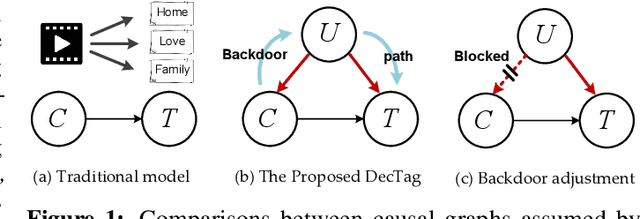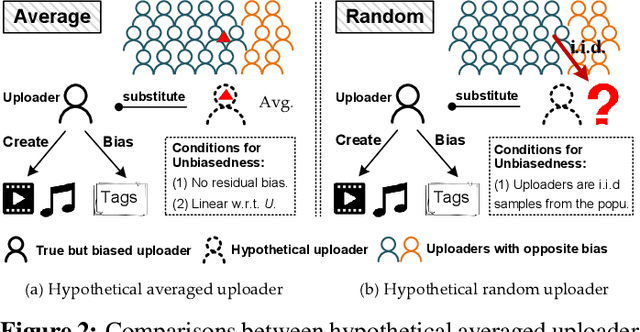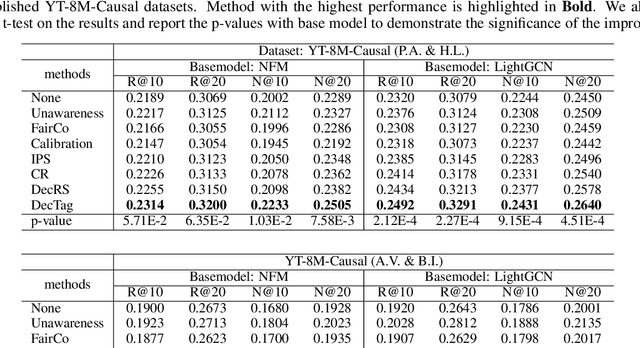Deep Deconfounded Content-based Tag Recommendation for UGC with Causal Intervention
Paper and Code
May 28, 2022



Traditional content-based tag recommender systems directly learn the association between user-generated content (UGC) and tags based on collected UGC-tag pairs. However, since a UGC uploader simultaneously creates the UGC and selects the corresponding tags, her personal preference inevitably biases the tag selections, which prevents these recommenders from learning the causal influence of UGCs' content features on tags. In this paper, we propose a deep deconfounded content-based tag recommender system, namely, DecTag, to address the above issues. We first establish a causal graph to represent the relations among uploader, UGC, and tag, where the uploaders are identified as confounders that spuriously correlate UGC and tag selections. Specifically, to eliminate the confounding bias, causal intervention is conducted on the UGC node in the graph via backdoor adjustment, where uploaders' influence on tags leaked through backdoor paths can be eliminated for causal effect estimation. Observing that adjusting the causal graph with do-calculus requires integrating the entire uploader space, which is infeasible, we design a novel Monte Carlo (MC)-based estimator with bootstrap, which can achieve asymptotic unbiasedness provided that uploaders for the collected UGCs are i.i.d. samples from the population. In addition, the MC estimator has the intuition of substituting the biased uploaders with a hypothetical random uploader from the population in the training phase, where deconfounding can be achieved in an interpretable manner. Finally, we establish a YT-8M-Causal dataset based on the widely used YouTube-8M dataset with causal intervention and propose an evaluation strategy accordingly to unbiasedly evaluate causal tag recommenders. Extensive experiments show that DecTag is more robust to confounding bias than state-of-the-art causal recommenders.
 Add to Chrome
Add to Chrome Add to Firefox
Add to Firefox Add to Edge
Add to Edge